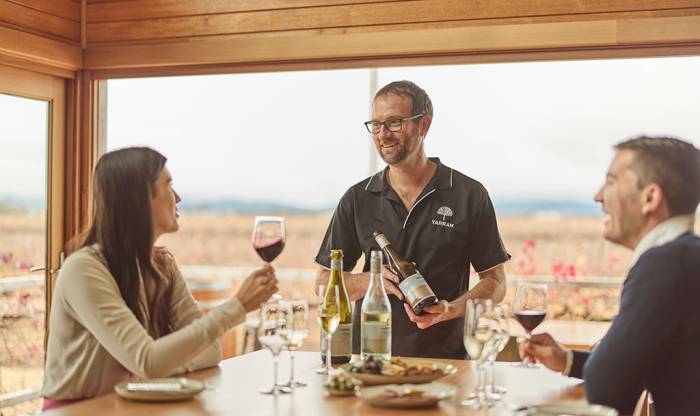Gastronomy Emerges as a Core Driver in Luxury Hospitality Growth
Hotels and restaurants invest in culinary excellence and sustainability to attract travelers seeking authentic, memorable experiences.
2025-10-02

In recent years, the role of food and wine in luxury hospitality has shifted from a secondary service to a central element of business strategy. Across the globe, high-end hotels and restaurants are investing more in their culinary offerings, recognizing that gastronomy is not only a cultural asset but also a key driver of economic growth and brand identity. Recent data shows that food and wine tourism is growing steadily, influencing both consumer choices and the financial performance of hospitality businesses.
The international association Relais & Châteaux, which brings together more than 580 independent hotels and restaurants worldwide, reported a total revenue of 3.2 billion euros in 2024. This marks an 8% increase compared to the previous year. Of this revenue, the food and beverage segment accounted for 42.1%, nearly matching the 49% generated by room bookings. These figures highlight how quality cuisine has become one of the main pillars of the business model for luxury hospitality establishments.
The growing importance of gastronomy is also closely linked to local culture and sustainability. Relais & Châteaux’s 2022-23 Sustainability Report notes progress in several areas, including sustainable cooking practices, use of local supply chains, biodiversity protection, reduction of single-use plastics, and monitoring of energy and water consumption. These efforts reflect a broader trend in the industry, where guests increasingly seek authentic experiences that connect them with the region’s traditions and environment.
Hospitality professionals are responding by developing menus that showcase local ingredients and culinary heritage. Many properties now collaborate with nearby farmers, winemakers, and artisans to offer guests a taste of the surrounding area. This approach not only supports local economies but also appeals to travelers who value transparency and environmental responsibility.
The rise of food and wine tourism is changing how hotels and restaurants operate. Culinary events, wine tastings, and cooking classes are becoming standard offerings at many luxury properties. These experiences attract visitors who are willing to travel specifically for unique dining opportunities. As a result, destinations known for their food culture are seeing increased demand from both domestic and international tourists.
Industry experts say that this shift is likely to continue as travelers place greater emphasis on meaningful experiences over traditional amenities. The integration of gastronomy into hospitality strategies is helping businesses differentiate themselves in a competitive market while meeting evolving guest expectations.
The focus on sustainability is also shaping investment decisions within the sector. Many hotels are adopting eco-friendly practices in their kitchens and dining rooms, from sourcing seasonal produce to minimizing waste. These initiatives are often highlighted in marketing campaigns as a way to attract environmentally conscious guests.
As food and wine tourism continues to grow, it is redefining standards of excellence in hospitality. The success seen by organizations like Relais & Châteaux suggests that culinary innovation and commitment to sustainability will remain central to the industry’s future development. For travelers seeking memorable experiences rooted in local culture, gastronomy is now an essential part of the journey.
Founded in 2007, Vinetur® is a registered trademark of VGSC S.L. with a long history in the wine industry.
VGSC, S.L. with VAT number B70255591 is a spanish company legally registered in the Commercial Register of the city of Santiago de Compostela, with registration number: Bulletin 181, Reference 356049 in Volume 13, Page 107, Section 6, Sheet 45028, Entry 2.
Email: [email protected]
Headquarters and offices located in Vilagarcia de Arousa, Spain.